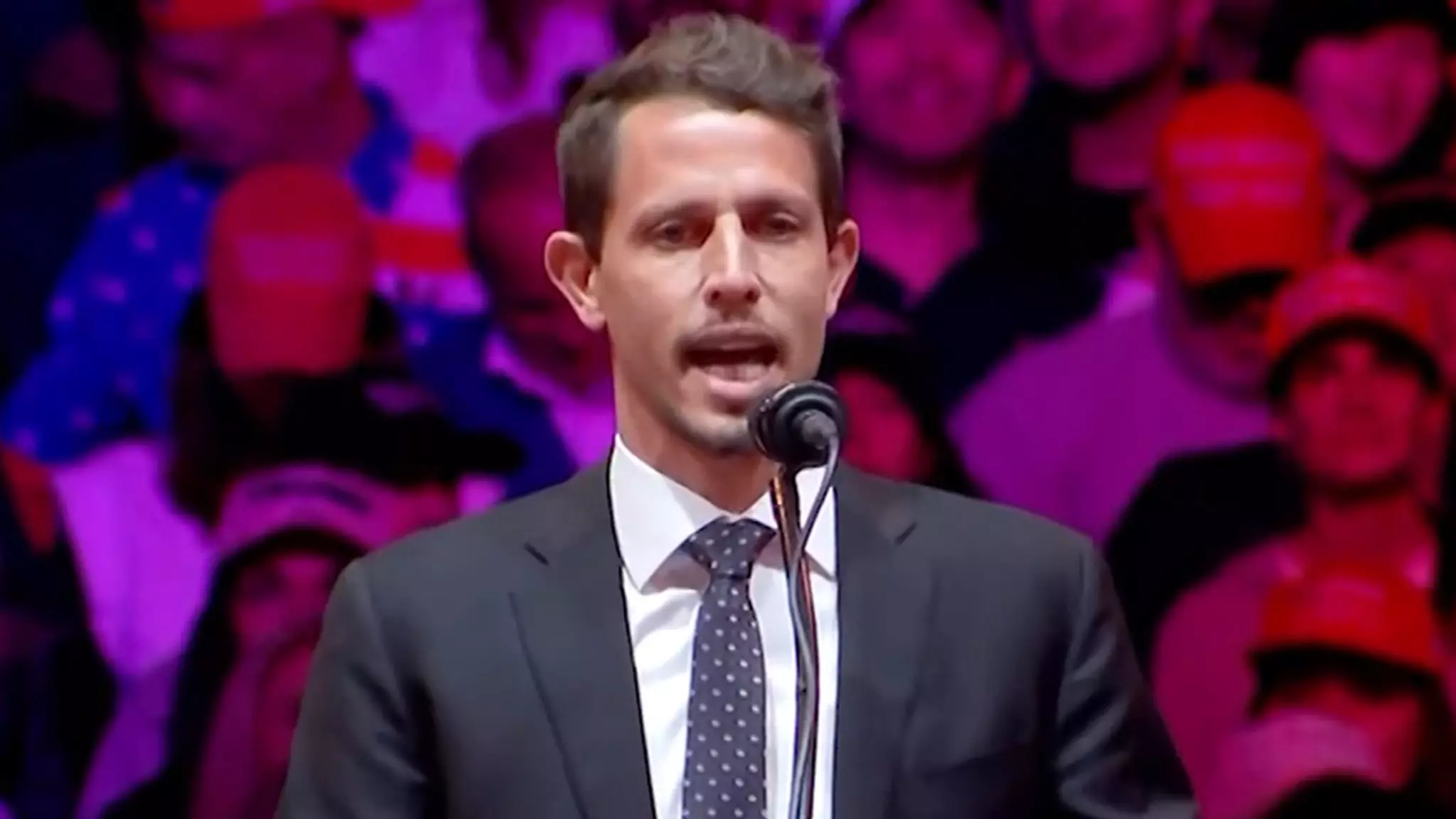Comedian Tony Hinchcliffe, known for his provocative stand-up routines, has embroiled himself in a heated controversy following his recent performance at a rally for former President Donald Trump at Madison Square Garden. Hinchcliffe’s penchant for edgy humour took a sharp turn when he made a particularly distasteful joke about Puerto Rico, drawing ire from public figures and audiences alike. This incident raises compelling questions about the boundaries of comedy, the responsibility of comedians in a politically charged atmosphere, and the repercussions of crossing those boundaries.
The Unraveling of a Joke
During his set, Hinchcliffe’s remarks included a cringe-worthy quip likening Puerto Rico to a “floating island of garbage,” a statement that was met with a noticeable lack of enthusiasm from the audience. This reaction was perhaps not surprising, given the societal tensions surrounding race and identity, particularly in light of Puerto Rico’s complex status as a U.S. territory. The immediate backlash was palpable, with the audience unsure of how to respond and Hinchcliffe himself acknowledging that he had crossed a line.
Public reactions swiftly followed, with prominent figures such as Kamala Harris’ Vice President candidacy partner, Tim Walz, and Congresswoman Alexandria Ocasio-Cortez vocally opposing Hinchcliffe’s remarks. Walz highlighted the essential truth that Puerto Ricans are American citizens who contribute significantly to society, both through taxes and military service. This perspective reinforces a broader narrative: that jokes about marginalized communities can venture into dangerous territory, perpetuating stereotypes and minimalizing real issues.
Comedian’s Explanation and Backlash
In an attempt to defend himself, Hinchcliffe pointed out that he targets a wide range of groups in his act, suggesting that his comedy is rooted in a form of social commentary rather than targeted attacks. However, this defense does little to assuage the hurt caused by his comments. Critics argue that an essential component of ethical comedy involves understanding the context and impact of one’s words, particularly when the subject involves historically marginalized groups. The response from figures such as Ricky Martin and Bad Bunny underscores a growing intolerance of casual racism cloaked as humour.
This incident has ignited a broader conversation about the role of comedy in society. Comedians often walk a tightrope between entertainment and insensitivity, engaging in a delicate balancing act that can lead to controversy. The question remains, at what point does humour become harmful? Comedians must be cognizant of the power their words wield, especially in today’s culturally diverse landscape.
Tony Hinchcliffe’s comedic misstep serves as a reminder of the critical conversations surrounding the ethics of comedy in the current socio-political climate. As society evolves, so too must the standards by which we gauge comedic material—especially when it involves specific communities with historical grievances. The backlash against Hinchcliffe highlights a shift towards demanding accountability and mindfulness from those who wield humour as their weapon of choice. As audiences grow weary of outdated comedic tropes, the call for comedians to sharpen their sensibilities grows louder. It invites not just reflection from Hinchcliffe, but from all performers navigating the complex intersection of comedy, race, and cultural awareness in modern discourse.

